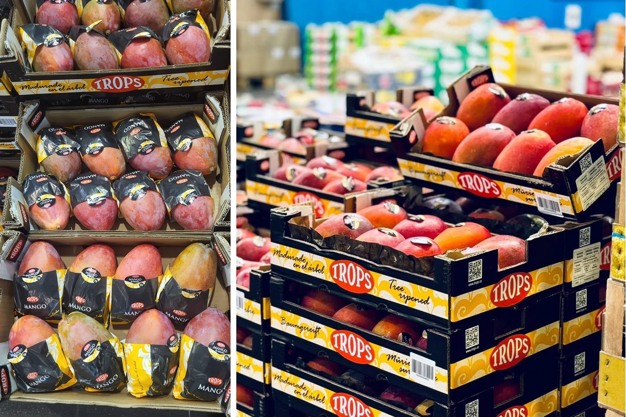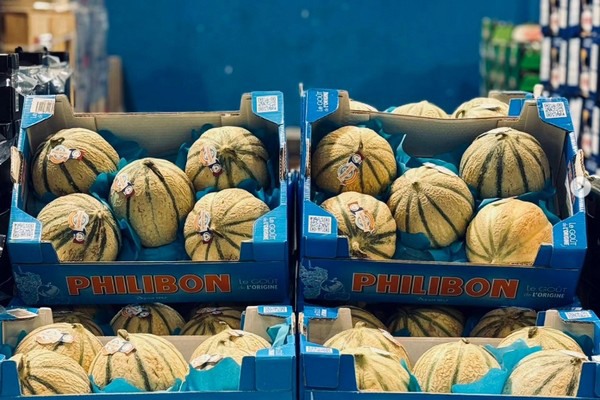The Spanish mango season is currently in full swing. "The marketing window for Spanish mangoes is around two months and runs until the end of October/beginning of November. During this period, we trade both the main Osteen variety and the tree-ripened and correspondingly higher-priced Irwin variety. Towards the end of the season, there are usually also smaller quantities of Kent mangoes from Spanish cultivation, whereby the main focus is clearly on the aforementioned varieties," reports Stefan Bednarek, buyer and seller at Früchtewelt GmbH, based in the central wholesale market hall in Munich.
Spanish mangoes also met with a receptive market this year. Due to inflation, prices were slightly higher than in the previous year. In general, Spanish mangoes appear to be gaining in importance. Bednarek: "I've been in the business since 2011 and back then we were the only place to go for Spanish Trops mangoes in the Munich market hall. Today, many other retailers also offer the product. Osteen in particular is enjoying increasing popularity as a high-quality, yet attractively priced mango from European cultivation."
 © Früchtewelt GmbHSpanish mangoes of the Osteen (l) and Irwin varieties.
© Früchtewelt GmbHSpanish mangoes of the Osteen (l) and Irwin varieties.
Attractive price range for premium melons
Another seasonal highlight in Früchtewelt GmbH's range is French Charentais melons from the premium brand Philibon. "We offer Charentais melons all year round and can draw on French produce in the summer. August in particular is usually a weak sales month due to the holidays, although demand for our melons was not at all bad in this month either. This is partly due to the affordable prices: In winter there are sometimes unit prices around EUR 6 to 7, at the moment we are at EUR 3 to 4, which is relatively favourable for a premium product. Of course, it also helps that a normal netted melon from Italy currently costs around EUR 2. If you now spend EUR 1 to 2 more, you have a premium melon, and the customer can see that."

French Charentais melons from the premium brand Philibon
Downward trend in specialised trade, online trade on the rise
Over the years, Früchtewelt GmbH has been able to assert itself as a permanent point of contact for all things exotic and tropical fruit. However, competition has increased noticeably, Bednarek observes, as many wholesale market traders now also offer exotics. In addition, there is a downward trend in the classic wholesale market clientele, i.e. speciality shops and weekly markets. Meanwhile, online retail is continuing to gain in importance. "We have now been able to win over a regular customer in this segment who buys from us three times a week. It is important that the goods are delivered in packs rather than loose so that they are easy to ship."
Kiwi berries and regional ginger
According to Bednarek, there are occasionally new product trends in the exotic sector. "We are currently offering our customers kiwi berries from Portugal. In just a few years, this item has become a permanent, seasonal part of our range and is also very popular with online retailers. Otherwise, we are delighted every year with the young ginger from regional cultivation, which we offer in autumn alongside imported goods from Thailand and Brazil," he says, referring to the imminent start of the season.
For more information:
Stefan Bednarek
Früchtewelt GmbH
Munich Wholesale Market
Telephone: +49 (0) 89 7 466 66 66-0
info@fruechtewelt.eu
www.fruechtewelt.eu
